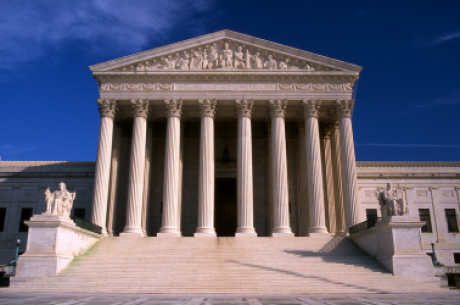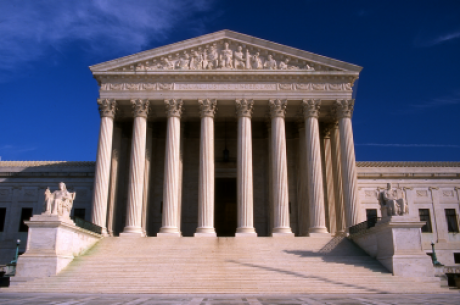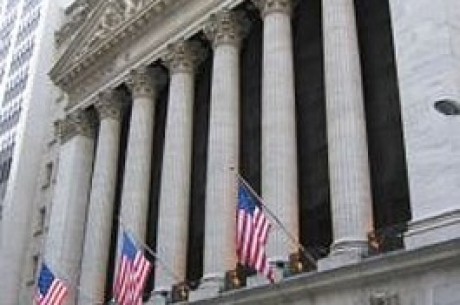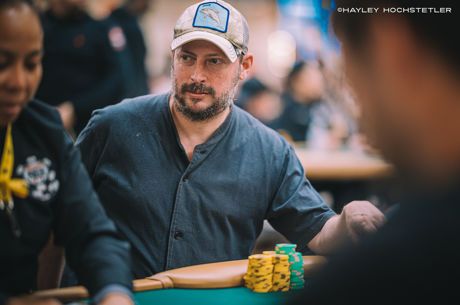Top Ten Stories of 2010: #2, Online Poker Legislation

Coming into 2010, the poker industry was looking to advance the cause for official legalization and licensing. From the beginning of the year, everyone was involved in a giant waiting game, and no one really knew what to expect when June 1, 2010, would roll around. That was the date the Unlawful Internet Gambling Enforcement Act was set to kick in.
Most of those involved in poker in one way or another cared and followed the headlines but were often tossed back and forth between positive and negative. First, the thoughts of legalized intrastate Internet poker were brought up in New Jersey and kept hopes alive, but those were again lost when Republican Scott Brown proved victorious over Obama-backed state Atty. Gen. Martha Coakley in a special election to fill the deceased Ted Kennedy's U.S. Senate seat. Then California became a player in the legalization of intrastate Internet poker and things swayed back toward positive.
Sen. Harry Reid (D-Nev.) was one of those thought of to be on the fence about Internet gaming. In February, it was revealed that the Senate Majority Leader appeared to have his legs dangling over the edge favoring online poker. He supported the delay of the UIGEA and this came to the attention of the Poker Players Alliance. The PPA was so encouraged that the organization began donating money for the Senator's reelection, something previously only done with Sen. Robert Menendez (D-N.J.), who introduced the Senate bill to license and regulate poker.
More toward the end of February, legislation to license and regulate Internet gambling has been tied to a bill with larger implications. That bill was the Bipartisan Tax Fairness and Simplification Act introduced by Sen. Ron Wyden (D-Ore.) and Judd Gregg (R-NH). As advertised, the bill would simplify and reform the U.S. tax code. To pay for the tax cuts outlined in the bill, a provision to license, regulate and tax the Internet gambling industry was made. Two things were very important about this move. First, the bill was introduced by a member of each party, which gave a lot of encouragement to many. Second, it set a precedent for Internet gambling legislation to be attached to other interests, much like the UIGEA got through the Senate in 2006, which caused this entire mess. This was great news to those in poker as it meant that if legislation to license and regulate Internet gambling can continue to be attached to other bills as a way to generate the revenue needed for a larger plan, it only takes one successful vehicle for online poker to gain official legalization in the U.S.
Moving forward to the next month, the hopes of poker advocates took another hit when, according to Congressman Barney Frank, the UIGEA regulations would not receive another delay from the Treasury Department. Sen. Jon Kyl (R-Ariz.) made a power play to block President Obama’s Treasury nominee from taking office and it worked. The UIGEA would come into effect on June 1, 2010. The compliance date for the regulations had already been delayed once for six months but wouldn’t be allowed a second extension.
What was the PPA going to do about this? After successfully petitioning for the delay that extended the compliance deadline on UIGEA regulations to June 1, the PPA would now focus its efforts going forward not on delaying,but on refining the final version.
Others were working during the month of March, as well. Rep. Jim McDermott (D-Wash.) reintroduced his Internet Gambling Regulation and Tax Enforcement Act toward the end of the month. The bill wasn’t said to be one that would compete with Frank’s legislation, but rather one that the two Congressman worked on together. The plan would be to combine both this newly introduced bill and Frank’s Internet Gambling Regulation, Consumer Protection and Enforcement Act in Internet gambling legislation were to come to a vote in the House.
On June 1, 2010, the UIGEA regulations were to be in full effect. In the days prior, much of the poker world was descending on Las Vegas in preparation for the long haul of the World Series of Poker. Many played poker online in the U.S. and were anxiously awaiting this compliance date. When it hit, things didn’t exactly turn into the desolate wasteland that everyone feared. Instead, our own Matthew Kredell reported at one point that over 41,000 were playing cash games on PokerStars and another 17,000-plus on Full Tilt Poker. Many pros and online poker enthusiasts breathed a sigh of relief within the confines of the Rio All Suite Hotel & Casino walls knowing it was going to be just a big, dried-up desert on the virtual felt. Still, a lot might change for the worse over the next couple of weeks.
About one month after the UIGEA took full effect on the online poker world, not much had changed. The games were still going on the sites with thousands and thousands of players playing poker. What had changed was that the UIGEA was preventing U.S. citizens from depositing to online sites. Still, players found ways around it and the money went into the games. The PPA even reached out to its members and asked them to notify the organization if they were having problems withdrawing funds. John Pappas, executive director of the PPA, said that the organization hadn’t received many complaints. After all, the UIGEA was only supposed to impact transactions to the poker sites.
In July, poker players in California received some good and bad news as the online poker legislation for the state was back on the board. State Sen. Rod Wright, who introduced the California Online Poker Law Enforcement Compliance and Consumer Protection Act, surprisingly announced that he had withdrawn the bill at a June 29 hearing in the Governmental Organization Committee he chaired. Wright still planned to pursue Internet poker legislation, but wanted to sit down with interested parties to craft a bill that would receive broader support. The good news was this wasn't the bill players were looking for, making the derailment from its path a positive.
On July 28, 2010, the House Financial Services Committee passed Frank's Internet Gambling Regulation, Consumer Protection and Enforcement Act by a 41-22-1 vote. This was big for online poker, but not because it meant the legalization of online poker was imminent. It was big because it showed how far the fight has come. Four years prior, Congress voted 6-1 against Internet gambling in supporting the UIGEA. On this key day of the year, the committee voted nearly 2-1 in favor of the cause.
After the passage of Frank’s bill, much of the poker community was excited. Plenty were even talking about the imminent federal legalization that was next to come. Even despite this important step in the movement, there was still plenty of work to be done and a very long road ahead before Frank’s bill could become law.
At the end of August, the PPA called for action for its members to sign a letter urging Commerce Casino to change its position on Frank's bill to federally license and regulate online poker. Commerce had representative Tom Malkasian testify in opposition of the bill during a hearing in front of the House Financial Services Committee in July. Although the bill still passed through the committee, Commerce allied itself on the side of poker enemies such as Rep. Spencer Bachus (D-Ala.) and Focus on the Family. Over 10,000 people had signed the letter including prominent professional poker players Annie Duke, Tom Dwan, Barry Greenstein, Greg Raymer, Huck Seed, Patrik Antonius, Ted Forrest, Phil Hellmuth, Phil Ivey, Vanessa Rousso, Doyle Brunson, Gus Hansen, Jennifer Harman, Howard Lederer, John Juanda, Mike Matusow, Chris Moneymaker, Phil Laak, Erick Lindgren, Chris Ferguson, Daniel Negreanu, Eli Elezra and Allen Cunningham. In that testimony, Malkasian compared operators like PokerStars and Full Tilt to a drug cartel, stating that if Congress were ever to decide to legalize marijuana, "certainly no one would suggest that the first federal permits to sell it should go to the Tijuana drug cartel since they have the most money and experience in marketing and distributing the product."
Moving into the final part of the year, the people’s right to play poker had seen an unprecedented amount of progress. Even though Frank’s bill passed the House Financial Services Committee back in July, and it was now September, the progress doesn’t carry over from year to year. The next step was for McDermott's Internet Gambling Regulation and Tax Enforcement Act to advance through the Ways and Means Committee. The PPA asked its members who live in the districts of Ways and Means representatives to send a PPA form letter asking for their congressmen to push for a markup and support the legislation.
Unfortunately, the bill would not get a markup in the House Ways and Means Committee prior to the November elections, according to a spokesman for the congressman, who cited a lack of time in the committee schedule. The markup was seen as the next big step toward federally licensed and regulated online poker but not getting the markup done before the end of the regular congressional schedule just adds to the already long odds for federal Internet poker legislation to pass through both houses in the little time remaining this year.
Also in September, Washington upheld a 2006 law that makes it a felony to play online poker in the state. Lee Rousso, the PPA Washington state director, challenged the law, but the judges ruled against him. Rousso had challenged the law as a violation of the commerce clause of the U.S. Constitution, which prohibits states from passing legislation that discriminates against interstate commerce. Rather than attempting the challenge the ruling in the U.S. Supreme Court, Pappas believed a legislative route to be the best chance to overturn the law. When the law was passed in 2006, the PPA was in its formative stage and there was no organized poker lobby, leading Pappas to believe the PPA could help block such legislation if it were introduced today. After the ruling, the two most prominent sites, PokerStars and Full Tilt Poker, stopped serving people in the state.
On the opposite side of the coin as Washington state, the New Jersey Senate passed the Internet gambling bill in November by an impressive 29-5 margin. The bill would license and regulate online poker within the state and even though this movement seemed stagnant for the past few months amidst everything else that was going on, was a big step forward. Shortly after the bill passed in New Jersey, California looked as though it was ready to follow in the same footsteps.
With a month left to go in 2010, Senate Majority Leader Harry Reid did his best ability to get a law passed to legalize, license and regulate Internet poker. Reid had been working hard on a behind-the-scenes deal with Senate and House leaders to attach an Internet poker bill to larger legislation guaranteed to pass in the lame-duck session the way poker's opponents attached the UIGEA to the SAFE Port Act in 2006. According to Pappas, if the bill is attached to a larger bill, that is a sign the deal has been reached in both houses and that government-sanctioned Internet poker will become a reality.
The rumors that were floating around all year about Reid’s move to support online poker seemed to be true now. Still, the bill wasn’t going to be perfect, and a lot of poker players were worried about one big thing: a proposed 15-month blackout period before the first licenses would be granted. This is meant to give time for U.S. casinos and other companies that want to be involved to get their websites together and to essentially reboot the Internet poker industry so that all sites begin on a level playing field. This worried a lot of people and made plenty of them question whether or not they would want the bill passed.
Will it pass? Won’t it pass? Back and forth it went. But then in mid December, the effort of Reid took a fatal blow, but no one could really put a finger on to why it died. Many even believe that because of the various leakings of the bill every few days it had more life on poker message boards and news sites than it ever did on Capitol Hill.
Reid’s push to insert anything into the bill for online poker was severely limited because ofcPresident Obama's handling of negotiations for the Democrats. This makes it hard to believe that this bill had any leverage still alive when the word got out. Rather, it was likely dead by the time the poker community got word of it.
Our own Mathew Kredell reported that Obama announced Monday, December 6, that an agreement had been reached with Republican leaders to extend the Bush-era tax cuts. On December 8, the Las Vegas Sun quoted Reid as saying "we're not able to" in response to being asked if he would be adding legalization of online poker to his objectives during the lame-duck session, then later that day withdrew the story because a Reid spokesman had called and said it was still on his agenda and that the quote was in response to another question, though there were no other questions audible on the Las Vegas Sun reporter's tape. It's possible that Reid really had already thrown in the towel, but his aides pointed out that he shouldn't say that publicly and make it look like he's not putting in the effort for the casinos that contributed hundreds of thousands of dollars to fund his re-election campaign.
Pappas told PokerNews in the middle of December that Reid's negotiations on the bill broke down late December 9 after House Democrats made it clear they would not pass a tax bill that included any attachments. So, at the very least, poker media and message boards were keeping the bill alive for nearly a week after Reid had waived the white flag.
The most important factor to come out of this saga is that Harry Reid, the highest ranking member of the Senate, finally came out publicly behind licensed and regulated online poker. That's something to build on for the future, especially moving into 2011.
On the other hand, the poker community had a wild, up-and-down ride in 2010 when it comes to online poker legislation. If 2010 is any sign of what’s to come in the future for online poker, the only thing that is really for certain is that the road is a long, bumpy one and the legalization of online poker will be very difficult to come by.
on Twitter for up-to-the-minute news, and also on Facebook.








